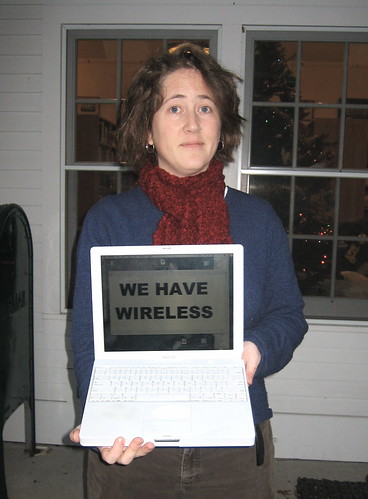So hey, we’re in a recession! And one thing that the media seem to agree about is that people are flocking to their libraries more than ever. In fact, just like “man returns library book 75 years late!” the news stories about libraries getting busy when people are out of work aren’t even that blogworthy lately. But people still send them to me and I still read them. Often they have good factoids like “During the Great Depression, not a single library closed” which I found interesting. That line comes from this article in the Journal-Sentinal Online with the fairly typical headline Libraries’ many benefits rediscovered in hard economic times. Good, right?
I was enjoying reading about it until I hit these lines…
Library directors report circulation spikes for last month of about 10% when compared with December 2007. “Escapism,” was Waukesha library director Jane Ameel’s concise speculation on the re-emergence of libraries’ attraction. “I wish we were giving them David Copperfield, but so much of our business is in CDs and entertainment,” she said.
Do you see where I’m going with this? This library director seems disappointed that people are going to the library to feel better and interact with materials that they enjoy. I’m disappointed because when I read that sentence I feel that the library director values Copperfield-reading patrons more than she values music-listening patrons. I’m sure she talked to the reporter for 45 minutes and that’s just what he decided to pull out of the discussion. And yet, I think we should be careful with how we talk about what we do.
I’m not sure I’d go totally over to the other extreme and say that a patron plugging his laptop into an external power outlet at the library after hours was “rediscovering the value of their library,” but it definitely sends a more positive message about how we view our patrons than the earlier quotation.
